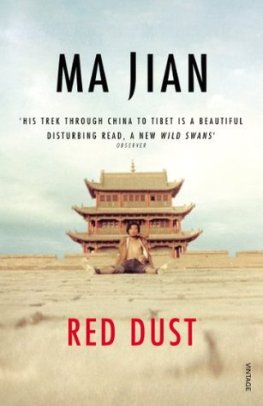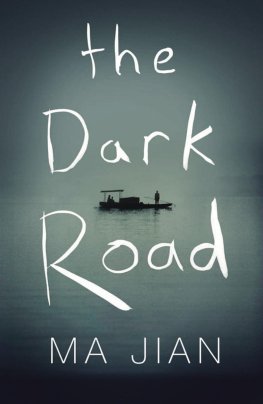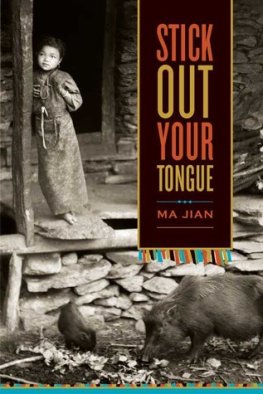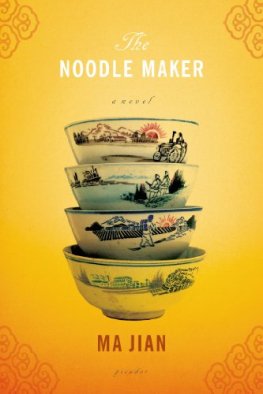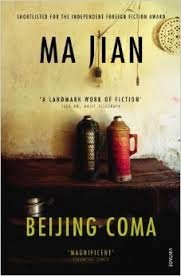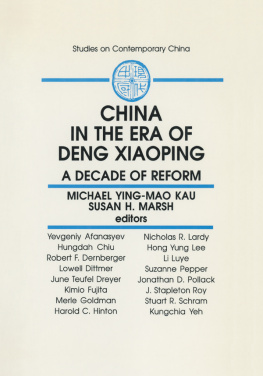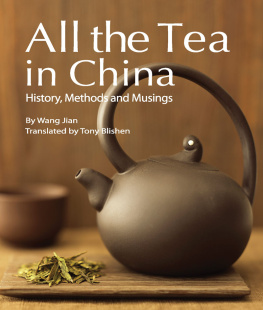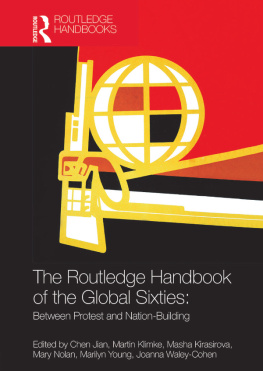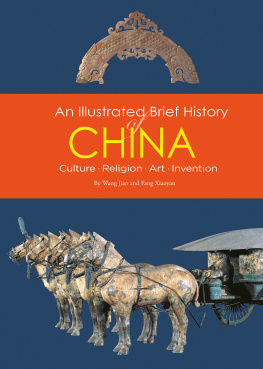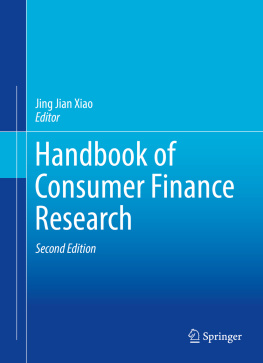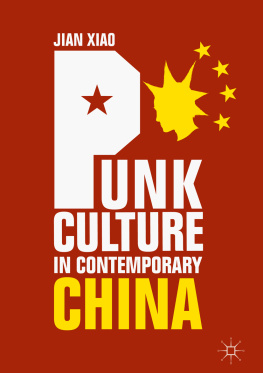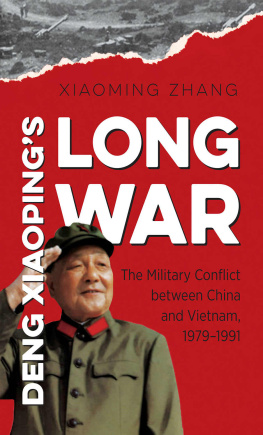In Chinese, surnames precede first names. Surnames have one syllable; first names have one or two. Each syllable is a transcription of a Chinese character and each character has a meaning and a sound. It is customary in English to write the two syllables of a first name as one word, for example, Guoping.
Transcriptions are pronounced as they read, with the following four exceptions: q is ch; x is hs; zh is j; c is ts.
The characters in this book are based on real people, but, except for Ma Jians daughter, their names have been changed.
Friends and acquaintances featured most prominently:




Last year, in the spring of 1981, my work unit moved me from the staff dormitory block to a small house in Nanxiao Lane. Number 53. The house is squeezed between Dongsi Eleventh Street and Dongsi Twelfth Street in the Eastern District of Beijing a hundred metres from the former residence of Liang Qichao, a member of the 1898 Reform Movement, whose calls for modernisation so enraged Empress Cixi that he fled the country and spent fourteen years in exile. The old locust tree outside his gate twists up a narrow gap between a wall and a telegraph pole. Nanxiao Lane lies twenty metres from my front door at the end of a narrow passage and is just wide enough for two buses to scrape past one another. At eight in the morning and four in the afternoon, the lane fills with people and bicycles, and everything comes to a halt.
From my sofa, I can hear buses stop and a conductress bang on a window and shout, Wait for the next one if you cant squeeze in. Hey! You with the gold wristwatch! Yes, you! Wheres your ticket? All right, smug bastard. Take a cab if youre so high and mighty. Filthy rag. .
The house is surrounded on three sides by red-brick apartment blocks. When kitchen windows open, eggshells, cabbage leaves and plastic bags drop onto my roof and roll into the yard. On one occasion I received a plate of fried kidneys someone up there must have smelt they had gone off and wanted me to deal with them. When I hang out my clothes to dry, pigeons nesting on the third floor splatter them with shit.
The yard is just two metres square. In autumn, the locust tree behind the back wall scatters it with twigs and branches. In the summer months, watermelon skins and empty ice-cream cartons fall from the flats and attract swarms of flies and mosquitoes, so I tend to stay indoors. Winter is the best season as my neighbours seal their windows. And when the snow falls, my mean little house even recaptures some of the charm of old Beijing.
I use the house to paint, write and sleep. My wife and daughter still live in my old flat in the compound of Yanshan Petrochemical Plant, a two-hour bus drive away. For four years I was the plants publicity photographer, while my wife danced in the propaganda troupe. Then three years ago, my photographs won a prize in a national competition and I was transferred to the capital to work for the foreign propaganda department of the All-China Federation of Trade Unions. The job keeps me so busy, I seldom get a chance to return to Yanshan.
The house may be a crumbling old shack, but the tap in the yard and the private gate give me an independence and freedom I never had in the dormitory block. A band of writers, painters, poets, dissidents and hangers-on use the house as a meeting point. We talk into the night about art and politics. We discuss the new Household Contract Responsibility System and Socialism with Chinese Characteristics. We play tapes of the Taiwanese singer Deng Lijun and distribute mimeographed copies of underground poetry. Sometimes we disguise a foreign journalist in balaclava and overalls, and sneak him into the house to show him our paintings and hear his stories. Many improbable plans have been debated between these four walls.
The room is filled with my paintings, I even use one as a rug. When I hold exhibitions here, many pictures go missing. But a man from the U.S. Embassy actually bought one once. He paid me forty dollars.
My neighbours prying eyes inevitably focus on my house. But the loud music and stream of visitors have also aroused the interest of the local police force. My friends all own keys to my front door. They try to arrive before dark so as not to attract attention. But when it is time to leave in the middle of the night no ones safety can be assured. So they either sleep over, or leave separately at five-minute intervals.
One night, I invited a colleague back to the house a girl called Xi Ping who works in accounts. After supper, we talked for a while then I offered to walk her home. We had barely stepped two hundred metres from my gate when the police descended on us. Fortunately I had my identity card with me. I said I lived nearby, said we had been chatting and forgotten the time, said lots of polite things and at last they let me off. They let Xi Ping off too, but she had to walk back to the dormitory block through the long dark lanes all by herself.
Another night, my friends and I had been drinking too much and we collapsed in a heap in the yard. Five minutes later a police van screeched to a halt outside the gate, four officers herded us into the room and demanded to see our documents. Li Tao was behind the bed curtain by that time, having a cuddle with his wife Mimi. An officer raised the curtain, Li Tao pulled it down, then the officer raised it again. This continued for some time until Li Tao opened his eyes at last and saw the five gold stars on the policemans hat. They were both interrogated of course. Neither of them could produce their marriage certificate, so they were taken away in the van.
Six years have passed since the death of Mao Zedong and the end of the Cultural Revolution. Deng Xiaoping is back in power, calling for Four Modernisations, private enterprise and foreign investment. He has liberated the economy, but continues to clamp down on all forms of dissent. When the activist Wei Jingsheng said the Four Modernisations were meaningless without the Fifth democracy he was arrested, put on trial and sentenced to fifteen years in jail.
The door has been opened to the outside world though, and people have started to think for themselves. In 1979, the No Name Group communist Chinas first independent art association held an inaugural exhibition in Beihai Park. The Star Group followed in its wake, and marched through the streets of Beijing demanding the right to hold private exhibitions. A team of Beijing photographers then set up the April Group with a revolutionary mission to photograph the country as it really is.
Everything is starting to change. China feels like an old tin of beans that having lain in the dark for forty years, is beginning to burst at the seams.
One winter afternoon of 1982, my daughter walks in from school. The strap of her bag is so long it almost reaches her knees.
Guoping and I have divorced, but she has agreed to let Nannan stay with me this term. She will come down from Yanshan on Saturday and take her back for the weekend, but today is only Tuesday. Nannan does not smile much any more. I am not happy either. My marriage is over, my girlfriend Xi Ping betrayed me twice this summer, and my work unit is threatening to rectify me again.

